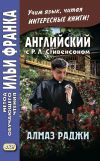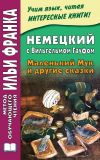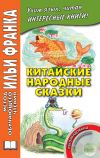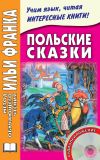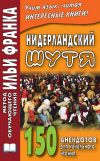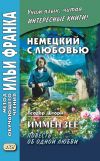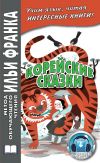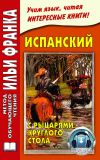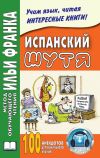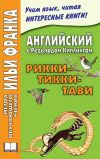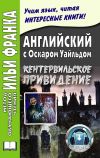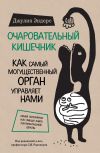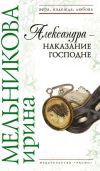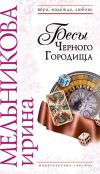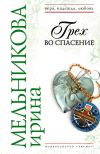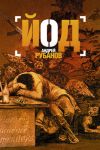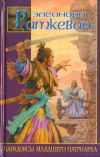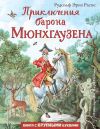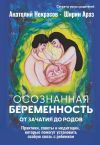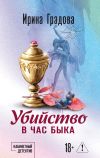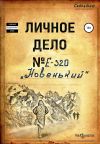
Автор книги: Энтони Хоуп
Жанр: Иностранные языки, Наука и Образование
Возрастные ограничения: 16+
сообщить о неприемлемом содержимом
Chapter 20
The Prisoner and the King
(Узник и король)
In order to a full understanding of what had occurred in the Castle of Zenda (чтобы полностью понять, что произошло в замке Зенды), it is necessary to supplement my account of what I myself saw and did on that night (необходимо дополнить мое описание /того/, что я сам видел и делал той ночью; account – доклад, сообщение; описание, рассказ) by relating briefly what I afterwards learnt from Fritz and Madame de Mauban (кратким рассказом /о том/, что я впоследствии узнал от Фрица и госпожи де Мобан; to relate – рассказывать). The story told by the latter explained clearly how it happened (история, рассказанная последней, ясно объясняла, как случилось) that the cry which I had arranged as a stratagem and a sham (что крик, который, как мы договаривались, /будет/ уловкой и притворством; to arrange – приводить в порядок; уславливаться, договариваться; sham – притворство; обман, трюк) had come, in dreadful reality, before its time (в действительности: «в страшной реальности» раздался преждевременно), and had thus, as it seemed at the moment, ruined our hopes (и таким образом, как показалось в тот момент, нарушил наши планы: «разрушил наши надежды»), while in the end it had favoured them (тогда как в итоге он способствовал им; to favour – благоволить, быть благосклонным; содействовать, помогать). The unhappy woman, fired, I believe by a genuine attachment to the Duke of Strelsau (несчастная женщина, вдохновленная, как я полагаю, истинной привязанностью к герцогу Стрелсо; to fire – зажигать, поджигать; воодушевляться, загораться /чем-л./; attachment – прикрепление, присоединение; привязанность, преданность), no less than by the dazzling prospects (не менее, чем ослепительными перспективами) which a dominion over him opened before her eyes (которые власть над ним открывала перед ее глазами), had followed him at his request from Paris to Ruritania (последовала за ним по его просьбе из Парижа в Руританию). He was a man of strong passions, but of stronger will (он был человеком с сильными страстями, но с /еще/ более сильной волей), and his cool head ruled both (а его трезвый ум управлял и тем и другим; cool – прохладный; спокойный, невозмутимый, хладнокровный; head – голова; способность, ум). He was content to take all and give nothing (он был склонен брать все и не давать ничего = ничего не отдавая взамен; content – довольный, удовлетворенный). When she arrived, she was not long in finding (когда она приехала, то не замедлила обнаружить; long – долго, долгое время) that she had a rival in the Princess Flavia (что у нее есть соперница в /лице/ принцессы Флавии); rendered desperate, she stood at nothing (отчаявшись, она не останавливалась ни перед чем; to render – отдавать, платить; приводить в какое-л. состояние) which might give, or keep for her, her power over the duke (что могло бы дать ей, или сохранить для нее, власть над герцогом). As I say, he took and gave not (как я говорю, он брал, не отдавая).

In order to a full understanding of what had occurred in the Castle of Zenda, it is necessary to supplement my account of what I myself saw and did on that night by relating briefly what I afterwards learnt from Fritz and Madame de Mauban. The story told by the latter explained clearly how it happened that the cry which I had arranged as a stratagem and a sham had come, in dreadful reality, before its time, and had thus, as it seemed at the moment, ruined our hopes, while in the end it had favoured them. The unhappy woman, fired, I believe by a genuine attachment to the Duke of Strelsau, no less than by the dazzling prospects which a dominion over him opened before her eyes, had followed him at his request from Paris to Ruritania. He was a man of strong passions, but of stronger will, and his cool head ruled both. He was content to take all and give nothing. When she arrived, she was not long in finding that she had a rival in the Princess Flavia; rendered desperate, she stood at nothing which might give, or keep for her, her power over the duke. As I say, he took and gave not.
Simultaneously, Antoinette found herself entangled in his audacious schemes (в то же время Антуанетта оказалась вовлеченной в его дерзкие замыслы; to entangle – запутывать; впутывать, вовлекать; tangle – спутанный клубок; путаница). Unwilling to abandon him, bound to him by the chains of shame and hope (не желая оставить его, прикованная к нему цепями позора и надежды), yet she would not be a decoy, nor, at his bidding, lure me to death (она, тем не менее, не хотела ни быть приманкой, ни по его просьбе заманивать меня в смертельную /ловушку/). Hence the letters of warning she had written (отсюда те письма с предупреждениями, /которые/ она написала). Whether the lines she sent to Flavia were inspired by good or bad feeling (были ли строки, /которые/ она посылала Флавии, внушены /ей/ добрыми или злыми побуждениями: «чувствами»), by jealousy or by pity, I do not know (ревностью или жалостью, я не знаю); but here also she served us well (но здесь она тоже хорошо послужила нам = но она нам здорово помогла). When the duke went to Zenda, she accompanied him (когда герцог отправился в Зенду, она поехала с ним; to accompany – сопровождать); and here for the first time she learnt the full measure of his cruelty (и тут она впервые в полной мере узнала о его жестокости), and was touched with compassion for the unfortunate King (и отнеслась с состраданием к несчастному королю; to touch – прикасаться, притрагиваться; трогать, волновать). From this time she was with us (с того времени она была на нашей стороне: «она была с нами»); yet, from what she told me, I know that she still (as women will) loved Michael (однако из /того/, что она рассказала мне, я понял, что она все еще (как это случается с женщинами) любила Михаэля; will – вспомогательный гл. для образования будущего времени; модальный гл., выражает часто повторяющееся действие), and trusted to gain his life, if not his pardon, from the King (и надеялась вымолить у короля, если не прощения для него, то его жизнь: «получить его жизнь, если не его прощение, от короля»; to trust – доверять/ся/, полагаться; надеяться, полагать; to gain – зарабатывать, добывать; получать, приобретать), as the reward for her assistance (как награду за ее помощь). His triumph she did not desire, for she loathed his crime (победы она ему не желала, потому что питала отвращение к его злодеяниям), and loathed yet more fiercely what would be the prize of it (а еще более люто ненавидела /то/, что стало бы тому наградой = а еще сильнее не желала того, к чему он в итоге стремился) – his marriage with his cousin, Princess Flavia (его брака с кузиной, принцессой Флавией).

Simultaneously, Antoinette found herself entangled in his audacious schemes. Unwilling to abandon him, bound to him by the chains of shame and hope, yet she would not be a decoy, nor, at his bidding, lure me to death. Hence the letters of warning she had written. Whether the lines she sent to Flavia were inspired by good or bad feeling, by jealousy or by pity, I do not know; but here also she served us well. When the duke went to Zenda, she accompanied him; and here for the first time she learnt the full measure of his cruelty, and was touched with compassion for the unfortunate King. From this time she was with us; yet, from what she told me, I know that she still (as women will) loved Michael, and trusted to gain his life, if not his pardon, from the King, as the reward for her assistance. His triumph she did not desire, for she loathed his crime, and loathed yet more fiercely what would be the prize of it – his marriage with his cousin, Princess Flavia.
At Zenda new forces came into play (в Зенде вступили в действие новые силы; to come into play – начать действовать) – the lust and daring of young Rupert (страсть и дерзость юного Руперта; lust – вожделение, похоть; страсть). He was caught by her beauty, perhaps (возможно, его привлекла ее красота; to catch – ловить, поймать; увлечь, привлечь /внимание и т. п./); perhaps it was enough for him that she belonged to another man, and that she hated him (возможно, ему было достаточно того, что она принадлежит другому, а его не выносит). For many days there had been quarrels and ill will between him and the duke (много дней между ним и герцогом царили вражда и неприязнь; quarrel – ссора; ill will – недоброжелательность, враждебность; ill – больной; злой, враждебный; will – воля, сила воли; твердое намерение, желание), and the scene which I had witnessed in the duke’s room (и сцена в комнате герцога, свидетелем которой я оказался) was but one of many (была лишь одной из многих). Rupert’s proposals to me, of which she had, of course, been ignorant (предложения Руперта, /сделанные/ мне, о которых она, конечно же, не знала; ignorant – невежественный; несведущий, не информированный /о чем-л./), in no way surprised her when I related them (совершенно ее не удивили, когда я о них рассказал); she had herself warned Michael against Rupert (она сама предостерегала Михаэля против Руперта), even when she was calling on me to deliver her from both of them (даже когда взывала ко мне избавить ее от них обоих; to deliver – доставлять, разносить /письма, товары/; освобождать; to call – звать, окликать; призывать). On this night, then, Rupert had determined to have his will (и вот, той ночью Руперт решил добиться своего; to have one’s will – добиться своего; will – воля, сила воли; твердое намерение, желание). When she had gone to her room (когда она удалилась в свою комнату), he, having furnished himself with a key to it, had made his entrance (он, заранее раздобыв от нее ключ, пробрался туда; to furnish with smth. – снабжать чем-л.; to make one’s entrance – выходить на сцену, сделать свой выход /театр./; entrance – вход /в здание и т. п./; выход /актера на сцену/). Her cries had brought the duke, and there in the dark room (ее крики привлекли герцога, и там в темноте комнаты), while she screamed, the men had fought (тогда как она кричала, мужчины сражались; to fight); and Rupert, having wounded his master with a mortal blow (и Руперт, смертельно ранив: «ранив смертельным ударом» своего господина), had, on the servants rushing in, escaped through the window as I have described (когда ворвались слуги, бежал через окно, как я уже /это/ описывал).

At Zenda new forces came into play – the lust and daring of young Rupert. He was caught by her beauty, perhaps; perhaps it was enough for him that she belonged to another man, and that she hated him. For many days there had been quarrels and ill will between him and the duke, and the scene which I had witnessed in the duke’s room was but one of many. Rupert’s proposals to me, of which she had, of course, been ignorant, in no way surprised her when I related them; she had herself warned Michael against Rupert, even when she was calling on me to deliver her from both of them. On this night, then, Rupert had determined to have his will. When she had gone to her room, he, having furnished himself with a key to it, had made his entrance. Her cries had brought the duke, and there in the dark room, while she screamed, the men had fought; and Rupert, having wounded his master with a mortal blow, had, on the servants rushing in, escaped through the window as I have described.
The duke’s blood, spurting out, had stained his opponent’s shirt (кровь герцога хлынула струей и запачкала рубашку его противника; to stain – пятнать, покрывать пятнами; пачкать); but Rupert, not knowing that he had dealt Michael his death (но Руперт, не зная, что нанес Михаэлю смертельный /удар/; to deal death – нести смерть), was eager to finish the encounter (жаждал довести схватку до конца). How he meant to deal with the other three of the band, I know not (как он намеревался поступить с оставшимися тремя из той банды, я не знаю; to deal – распределять; поступать, обходиться). I dare say he did not think, for the killing of Michael was not premeditated (полагаю, он /об этом/ не думал, поскольку не планировал заранее убивать Михаэля; premeditated – преднамеренный; обдуманный заранее; to meditate – замышлять, затевать; намереваться, планировать). Antoinette, left alone with the duke, had tried to stanch his wound (Антуанетта, оставшись с герцогом наедине, попыталась остановить кровотечение из его раны), and thus was she busied till he died (и была этим занята = и делала это, пока он /не/ умер); and then, hearing Rupert’s taunts, she had come forth to avenge him (а потом, услышав насмешки Руперта, вышла, чтобы отомстить ему). Me she had not seen, nor did she till I darted out of my ambush (меня она не видела до того самого момента, пока я /не/ выскочил из своего укрытия; ambush – засада), and leapt after Rupert into the moat (и /не/ прыгнул в ров вслед за Рупертом).
The same moment found my friends on the scene (в этот момент появились мои друзья: «тот же самый момент обнаружил моих друзей на сцене»). They had reached the château in due time, and waited ready by the door (они добрались до дворца в назначенное время и наготове ждали у дверей). But Johann, swept with the rest to the rescue of the duke, did not open it (но Иоганн, бросившись с остальными спасать герцога, не открыл их; to sweep – подметать, чистить; нестись, мчаться); nay, he took a part against Rupert, putting himself forward more bravely (более того, он выступил: «принял участие /в борьбе/» против Руперта, бросившись вперед храбрее; part – часть, доля; участие) than any in his anxiety to avert suspicion (чем кто-либо другой, стремясь: «в своем стремлении» отвести /от себя/ подозрения; anxiety – беспокойство, тревога; страстное желание); and he had received a wound, in the embrasure of the window (и он получил рану, /что я и видел/ в проеме окна).

The duke’s blood, spurting out, had stained his opponent’s shirt; but Rupert, not knowing that he had dealt Michael his death, was eager to finish the encounter. How he meant to deal with the other three of the band, I know not. I dare say he did not think, for the killing of Michael was not premeditated. Antoinette, left alone with the duke, had tried to stanch his wound, and thus was she busied till he died; and then, hearing Rupert’s taunts, she had come forth to avenge him. Me she had not seen, nor did she till I darted out of my ambush, and leapt after Rupert into the moat.
The same moment found my friends on the scene. They had reached the château in due time, and waited ready by the door. But Johann, swept with the rest to the rescue of the duke, did not open it; nay, he took a part against Rupert, putting himself forward more bravely than any in his anxiety to avert suspicion; and he had received a wound, in the embrasure of the window.
Till nearly half past two Sapt waited (примерно до половины третьего Сэпт ждал); then, following my orders, he had sent Fritz to search the banks of the moat (затем, следуя моим указаниям, послал Фрица обследовать берега рва). I was not there (меня там не было). Hastening back, Fritz told Sapt (поспешив назад, Фриц сказал /об этом/ Сэпту); and Sapt was for following orders still (но Сэпт, все же, был за /то, чтобы/ следовать распоряжениям; still – до сих пор, все еще, по-прежнему; все же, тем не менее, однако), and riding at full speed back to Tarlenheim (и во весь опор скакать назад в Тарленхайм); while Fritz would not hear of abandoning me (тогда как Фриц и слышать не желал о /том, чтобы/ бросить меня), let me have ordered what I would (что бы я там ни приказал: «позволил мне приказывать что угодно»). On this they disputed some few minutes (несколько минут они спорили об этом); then Sapt, persuaded by Fritz, detached a party under Bernenstein (потом Сэпт, убежденный Фрицем, послал отряд под /командованием/ Берненштайна; to detach – отделять; отряжать, посылать) to gallop back to Tarlenheim and bring up the marshal (галопом назад в Тарленхайм, чтобы поднять маршала), while the rest fell to on the great door of the château (тогда как остальные навалились на громадные двери дворца; to fall – падать; to fall to – начинать, приниматься за /что-л./; нападать). For several minutes it resisted them (несколько минут они = двери не подавались: «сопротивлялись им»; to resist – сопротивляться; не поддаваться, противостоять); then, just as Antoinette de Mauban fired at Rupert of Hentzau on the bridge (потом, как раз когда Антуанетта де Мобан выстрелила в Руперта Хенцо на мосту), they broke in, eight of them in all: and the first door they came to (они ввосьмером ворвались внутрь, и первая дверь, к которой они подбежали; in all – всего) was the door of Michael’s room (оказалась дверью в комнату Михаэля); and Michael lay dead across the threshold (а Михаэль лежал на пороге мертвым; to lie), with a sword-thrust through his breast (с пронзенной мечом грудью; thrust – толчок; выпад, удар, колющий удар, укол).

Till nearly half past two Sapt waited; then, following my orders, he had sent Fritz to search the banks of the moat. I was not there. Hastening back, Fritz told Sapt; and Sapt was for following orders still, and riding at full speed back to Tarlenheim; while Fritz would not hear of abandoning me, let me have ordered what I would. On this they disputed some few minutes; then Sapt, persuaded by Fritz, detached a party under Bernenstein to gallop back to Tarlenheim and bring up the marshal, while the rest fell to on the great door of the château. For several minutes it resisted them; then, just as Antoinette de Mauban fired at Rupert of Hentzau on the bridge, they broke in, eight of them in all: and the first door they came to was the door of Michael’s room; and Michael lay dead across the threshold, with a sword-thrust through his breast.
Sapt cried out at his death, as I had heard, and they rushed on the servants (Сэпт закричал, /увидев/ его мертвым, что я и услышал, и они набросились на слуг); but these, in fear, dropped their weapons (но те в страхе побросали свое оружие), and Antoinette flung herself weeping at Sapt’s feet (а Антуанетта кинулась, рыдая, к ногам Сэпта; to fling). And all she cried was, that I had been at the end of the bridge and leapt off (и она выкрикивала только /то/, что я стоял на /другом/ конце моста, а /потом/ прыгнул /вниз/). “What of the prisoner?” asked Sapt (что с узником? – спросил Сэпт); but she shook her head (но она /лишь/ мотнула головой; to shake). Then Sapt and Fritz, with the gentlemen behind them (потом Сэпт, Фриц и /остальные/ джентльмены, следовавшие за ними), crossed the bridge, slowly, warily, and without noise (медленно, осторожно и бесшумно перешли через мост); and Fritz stumbled over the body of De Gautet in the way of the door (и Фриц в дверях споткнулся о тело Де Готе). They felt him and found him dead (они осмотрели: «ощупали» его и обнаружили, что он мертв; to feel – чувствовать; ощупывать, трогать, осязать).
Then they consulted, listening eagerly for any sound from the cells below (потом они посовещались, ловя: «вслушиваясь напряженно в» каждый звук из темницы снизу; to consult – советоваться, консультироваться; совещаться; eager – страстно желающий; интенсивный, напряженный, энергичный); but there came none, and they were greatly afraid that the King’s guards had killed him (но оттуда не доносилось ни звука, и они здорово испугались, что конвоиры короля убили его), and having pushed his body through the great pipe, had escaped the same way themselves (и, вытолкнув его тело через ту огромную трубу, сами бежали тем же путем).

Sapt cried out at his death, as I had heard, and they rushed on the servants; but these, in fear, dropped their weapons, and Antoinette flung herself weeping at Sapt’s feet. And all she cried was, that I had been at the end of the bridge and leapt off. “What of the prisoner?” asked Sapt; but she shook her head. Then Sapt and Fritz, with the gentlemen behind them, crossed the bridge, slowly, warily, and without noise; and Fritz stumbled over the body of De Gautet in the way of the door. They felt him and found him dead.
Then they consulted, listening eagerly for any sound from the cells below; but there came none, and they were greatly afraid that the King’s guards had killed him, and having pushed his body through the great pipe, had escaped the same way themselves.
Yet, because I had been seen here (однако, поскольку меня видели здесь), they had still some hope (thus indeed Fritz, in his friendship, told me) (у них еще оставалась некоторая надежда (как по дружбе рассказал мне Фриц)); and going back to Michael’s body, pushing aside Antoinette, who prayed by it (и, вернувшись к телу Михаэля, отстранив Антуанетту, которая молилась подле него), they found a key to the door which I had locked, and opened the door (нашли ключ от двери, которую я запер, и открыли ее). The staircase was dark, and they would not use a torch at first (/на/ лестнице было темно, и они сначала не зажигали: «не использовали» факел), lest they should be more exposed to fire (чтобы не подставлять /себя/ под выстрелы; to expose – делать видимым, выставлять на показ; подвергать /опасности/; fire – огонь, пламя; стрельба). But soon Fritz cried (но вскоре Фриц крикнул): “The door down there is open! See, there is light (дверь внизу открыта! смотрите, там свет)!” So they went on boldly, and found none to oppose them (так что они смело пошли вперед, не встречая никого, кто бы им помешал; to oppose – противопоставлять; сопротивляться, препятствовать, мешать /ср. оппозиция/). And when they came to the outer room (и когда они вошли во внешнюю комнату) and saw the Belgian, Bersonin, lying dead (и увидели бельгийца Берзонина лежащего мертвым), they thanked God, Sapt saying: “Ay, he has been here (они возблагодарили Господа, и Сэпт сказал: Да, он побывал здесь).” Then rushing into the King’s cell (затем, бросившись в темницу короля), they found Detchard lying dead across the dead physician (они нашли Дэтчарда, лежащего мертвым на мертвом враче; across – поперек), and the King on his back with his chair by him (и короля, лежащего на спине, рядом с его стулом). And Fritz cried: “He’s dead (и Фриц воскликнул: Он мертв)!” and Sapt drove all out of the room except Fritz, and knelt down by the King (а Сэпт выгнал всех, кроме Фрица, из комнаты и опустился рядом с королем на колени); and, having learnt more of wounds and the sign of death than I (и поскольку он /за свою жизнь/ повидал: «изучил» больше ран и признаков смерти, нежели я), he soon knew that the King was not dead (он вскоре понял, что король не был мертв; to know – знать; понимать, осознавать), nor, if properly attended, would die (и если должным образом ухаживать /за ним/, то и не умрет; to attend – посещать, присутствовать; ухаживать, заботиться).

Yet, because I had been seen here, they had still some hope (thus indeed Fritz, in his friendship, told me); and going back to Michael’s body, pushing aside Antoinette, who prayed by it, they found a key to the door which I had locked, and opened the door. The staircase was dark, and they would not use a torch at first, lest they should be more exposed to fire. But soon Fritz cried: “The door down there is open! See, there is light!” So they went on boldly, and found none to oppose them. And when they came to the outer room and saw the Belgian, Bersonin, lying dead, they thanked God, Sapt saying: “Ay, he has been here.” Then rushing into the King’s cell, they found Detchard lying dead across the dead physician, and the King on his back with his chair by him. And Fritz cried: “He’s dead!” and Sapt drove all out of the room except Fritz, and knelt down by the King; and, having learnt more of wounds and the sign of death than I, he soon knew that the King was not dead, nor, if properly attended, would die.
And they covered his face and carried him to Duke Michael’s room (они накрыли ему лицо, отнесли в комнату герцога Михаэля), and laid him there (и положили его там); and Antoinette rose from praying by the body of the duke (а Антуанетта, /перестав/ молиться, поднялась от тела герцога; to rise – восходить; вставать на ноги, подниматься) and went to bathe the King’s head and dress his wounds, till a doctor came (и подошла, чтобы обмыть королю голову и перевязать раны, пока не прибудет доктор; to dress – одевать/ся/; перевязывать /рану/). And Sapt, seeing I had been there, and having heard Antoinette’s story (и Сэпт, видя, что я был там и услышав рассказ Антуанетты), sent Fritz to search the moat and then the forest (послал Фрица осмотреть ров, а потом лес). He dared send no one else (он не рискнул послать кого-то еще). And Fritz found my horse, and feared the worst (а Фриц, найдя мою лошадь, опасался худшего). Then, as I have told, he found me, guided by the shout (затем, как я /уже/ рассказал, он нашел меня, привлеченный криком; guided – управляемый; ведомый) with which I had called on Rupert to stop and face me (которым я призывал Руперта остановиться и /сразиться/ со мной лицом к лицу). And I think a man has never been more glad to find his own brother alive (и, думаю, ни один человек не был больше рад обнаружить своего собственного брата живым) than was Fritz to come on me (чем Фриц, когда нашел меня; to come on – приближаться, налететь, разразиться /о ветре, шквале/; натыкаться, наскакивать); so that, in love and anxiety for me, he thought nothing of a thing so great (так что от любви и беспокойства обо мне он не помышлял так сильно ни о чем) as would have been the death of Rupert Hentzau (как о смерти Руперта Хенцо). Yet, had Fritz killed him, I should have grudged it (однако же, если бы Фриц убил его, я бы не пришел от этого в восторг; to grudge – выражать/испытывать недовольство).

And they covered his face and carried him to Duke Michael’s room, and laid him there; and Antoinette rose from praying by the body of the duke and went to bathe the King’s head and dress his wounds, till a doctor came. And Sapt, seeing I had been there, and having heard Antoinette’s story, sent Fritz to search the moat and then the forest. He dared send no one else. And Fritz found my horse, and feared the worst. Then, as I have told, he found me, guided by the shout with which I had called on Rupert to stop and face me. And I think a man has never been more glad to find his own brother alive than was Fritz to come on me; so that, in love and anxiety for me, he thought nothing of a thing so great as would have been the death of Rupert Hentzau. Yet, had Fritz killed him, I should have grudged it.
The enterprise of the King’s rescue being thus prosperously concluded (операция по спасению короля = спасение короля, завершившееся так успешно; enterprise – смелое предприятие; prosperous – процветающий, преуспевающий; успешный, удачный), it lay on Colonel Sapt to secure secrecy (налагало на полковника Сэпта /обязанность/ сохранить тайну; to secure – обеспечивать безопасность; охранять) as to the King ever having been in need of rescue (о /том, что/ король когда-либо нуждался в спасении). Antoinette de Mauban and Johann the keeper (Антуанетту де Мобан и лесничего Иоганна) (who, indeed, was too much hurt to be wagging his tongue just now (который, правда, был слишком сильно ранен, чтобы болтать языком в тот момент: «сейчас»)) were sworn to reveal nothing (заставили поклясться в том, что /они будут/ молчать: «не откроют ничего»; to swear); and Fritz went forth to find – not the King (а Фриц отправился разыскивать – нет, не короля), but the unnamed friend of the King (а некоего друга короля; unnamed – безымянный; неупомянутый), who had lain in Zenda and flashed for a moment (который останавливался в Зенде и на мгновение промелькнул; to lie – лежать; остановиться ненадолго, переночевать) before the dazed eyes of Duke Michael’s servants on the drawbridge (перед глазами изумленных слуг герцога Михаэля на подъемном мосту). The metamorphosis had happened (метаморфоза произошла); and the King, wounded almost to death by the attacks of the gaolers (и король, почти смертельно раненный при нападении тюремщиков) who guarded his friend, had at last overcome them (которые сторожили его друга, в конце концов победил их), and rested now, wounded but alive, in Black Michael’s own room in the Castle (и теперь отдыхал, раненый, но живой, в замке в личной: «собственной» комнате Черного Михаэля).

The enterprise of the King’s rescue being thus prosperously concluded, it lay on Colonel Sapt to secure secrecy as to the King ever having been in need of rescue. Antoinette de Mauban and Johann the keeper (who, indeed, was too much hurt to be wagging his tongue just now) were sworn to reveal nothing; and Fritz went forth to find – not the King, but the unnamed friend of the King, who had lain in Zenda and flashed for a moment before the dazed eyes of Duke Michael’s servants on the drawbridge. The metamorphosis had happened; and the King, wounded almost to death by the attacks of the gaolers who guarded his friend, had at last overcome them, and rested now, wounded but alive, in Black Michael’s own room in the Castle.
There he had been carried, his face covered with a cloak, from the cell (туда его перенесли из темницы, укрыв лицо плащом); and thence orders issued, that if his friend were found (и оттуда исходили приказания, что если его друг найдется), he should be brought directly and privately to the King (он должен быть немедленно и без излишнего шума: «частным образом» доставлен к королю), and that meanwhile messengers should ride at full speed to Tarlenheim (а тем временем посыльные должны во весь опор скакать в Тарленхайм), to tell Marshall Strakencz to assure the princess of the King’s safety (и передать маршалу Штракенцу, чтобы /тот/ заверил принцессу в безопасности короля) and to come himself with all speed to greet the King (и как можно быстрее прибыл сам поприветствовать короля). The princess was enjoined to remain at Tarlenheim (принцессе повелевалось оставаться в Тарленхайме), and there await her cousin’s coming or his further injunctions (и ожидать там прибытия ее кузена или его дальнейших указаний). Thus the King would come to his own again (так король снова вступил в свои /права/), having wrought brave deeds, and escaped, almost by a miracle (совершив отважные деяния и избежав, почти чудом; to wreak), the treacherous assault of his unnatural brother (вероломного нападения своего жестокого брата; unnatural – неестественный; жестокий, злой).
